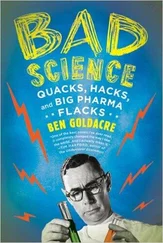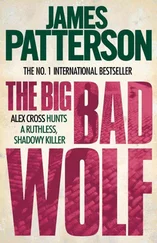At that point, if the person was still listening and hadn’t walked away to compose themselves or escape, Pauline would go on. If they had left, she’d go on anyway, just for Paul, like she was telling him her story and not his. “I mean, baloney ain’t hard. It’s soft. What nobody nowhere can figure out for the life of them is why them blades was so sharp. Ain’t nothing to cut through baloney. All’s you really need is a butter knife. So, no wonder Weiss had to take the blame for it. And boy should they ever had. We may have gotten us a sports car and a new memory-foam mattress out of it. Might one day take ourselves a cruise to Alaska, but you can’t ever make up for a man losing his arms. Never can. Can’t get them back now, can you, Paul?”
To which Paul would always nod and Pauline would coo over him like a mourning dove and Paul would bask for a moment in the false glow that he hadn’t stuck his arms in the machine of his own will. Every time Pauline was finished telling the story, Paul was able to momentarily forgive himself. For his accident, for his son’s accident. For his impatience with—for his downright resistance to—rehabilitation. For choosing Pauline and an outdated hook over advanced prosthetics. Sometimes the story made Paul feel so good, he would even ask Pauline to tell it to him alone, at night when he couldn’t sleep. And she would because that was what Pauline was: a marathon mouth.
It was the reason Paul had married her. She’d been his nurse in the hospital. The first to wipe his ass after the accident. As she’d wiped him with toilet paper and then a moist wipe and then flushed the toilet and pulled his pants back up and snapped off the hospital gloves, she’d told Paul all about an eight-piece set of porcelain figurines she’d seen on TV. They were made in Germany. They were the cutest little singing children she ever had seen. They had hair like an angel’s. They had cheeks like apples. And Paul, humiliated that he could no longer wipe his own ass, a consequence he had not considered before he’d placed his arms under the baloney cutters, was just so grateful for Pauline’s inability to shut up that he fell in love. He knew Pauline was someone who’d never, ever let there be a moment of silence when the world would close in on him and he’d have to remember his son’s death and how he’d caused it. He knew Pauline would yammer enough to keep the memory of the accident, of the barn and the beam, from coming back to him, not to mention how Denise—pretty Denise, his first wife and son’s mother—had left him cold, right there at the gravesite, right after the preacher had closed his Bible and Paul had dropped a blue carnation on the cheap, pine coffin. With Pauline in his world, Paul’s previous one stood less of a chance of returning to him in still and lonesome moments, because there wouldn’t be any still and lonesome moments. So, after that first ass-wiping, Paul ordered the set of German figurines by having another nurse call and order them, and then he had them delivered to the hospital and put on Pauline’s portion of the nurse’s station, where she kept a bag of miniature Kit Kats and her I’m Not Fat, I’m Full of Love coffee cup. And when she came into Paul’s room crying and asked him what had come over him, that’s when he asked her to marry him. She cried and cried and smiled and smiled and said, “Why, Paul Lester Lemmon. It would be an honor.”
*
They got married where Pauline wanted: at the Bavarian-style chapel in the Bavarian-style town of Copper Springs, West Virginia, where Pauline wanted to move into a colossal A-frame after Paul told her she’d never have to work a day again in her life (other than doing everything for him) because he’d been given nine million dollars from the Weiss Meat Processors and all nine of that was hers. Paul was happy to move to a town where no one knew him or had known Denise or had any clue about the fate of his son who he could no longer refer to by name. And he was happy to marry a wife who knew none of it either, a woman he could make up his untruthfulness to in gifts: a chandelier the size of a hay bale, a curio cabinet stacked with German curios, a walk-in closet full of velour pantsuits, window boxes full of plastic crimson geraniums, an amethyst cocktail ring, an oil painting of Elvis Presley for the entry hall, a jumbo-capacity washer she’d wanted her whole life, a seashell anklet in the Walmart checkout she’d wanted thirty seconds. Pauline asked and Paul complied. It was the least he could do. She wiped his ass at least once a day. Sometimes three if she made enchilada casserole.
“I’ll buy you anything your heart desires,” Paul promised, usually on the toilet, in his moments of helplessness. “You name it, Pauline. You got it.”
And Pauline would pat his back and tell him she loved him and that he was a good, good man. Her hero, in fact. And all she really needed at this point was the final set of German choir boys and then she’d be complete. “Them,” she said, and one Friday night added, lowering her voice: “and a son.”
Paul nearly fell from the commode. “A what?”
“A son,” Pauline repeated softly, but then her voice regained its volume and momentum. “I ain’t told you this, Paul, but I was born without a uterus. Well, not exactly no uterus, but a uterus that wasn’t connected to nothing. It just floats inside me like a jellyfish. Never did have a period or nothing, which some gals might consider a blessing, but for me it was just a reminder that I was a broken woman. Good for nothing. I wanted so much to care for someone. That’s why I became a nurse and then why I’m here with you and, oh, Paul, I’m not getting any younger. I want a son. I want to adopt a son. Won’t you let us get ourselves a boy who has no future? A boy who’s been shuffled from foster home to foster home who ain’t never known what it feels like to be loved or hugged or have a room of his own?”
Paul said nothing. He was waiting for Pauline to finish talking, which he knew could take days. He was also waiting for her to wipe him.
“I’ve already been doing the research. I got me a brochure from the Appalachian Boys’ Home. It’s twenty miles over in Flat Lick. And, oh all right, I’ll be honest. Last weekend when I said I was going to the Walmart for potholders and I left you here, I went on over to Flat Lick and had a look at the boys. They’re the saddest sight I ever have seen. I had myself a good long look at all the boys, and I didn’t take you because I didn’t want you to tell me no and also, without the arms and all, I was afraid they would think we was there to get ourselves a handyman and not a son, so I just went over there by my lonesome like I was some single mother, and I already got one picked out to take on a day outing and I think you’ll like him. His name is Gordon and he’s six-four and he has a lazy eye and he’s seventeen, which means we’d only have him for a year and I picked him because only a terrible person would say no to a seventeen-year-old who’s never had a family. Only a terrible person would say no to a woman who’s never had a uterus and I know you ain’t that sort of man, are you, Paul? You ain’t a terrible man at all.” She paused to sniffle, then finally reached for the toilet paper and rolled a wad of it around her hand in preparation to wipe before stalling out and starting up again. “You ever go to the pound and look at the old dogs? They don’t never get picked. Don’t nobody want them. It’s always puppies and kittens, kittens and puppies. Ain’t ever the old Great Danes. Never. They just gas ’em. That or let them die on the concrete in a puddle of their own pee.”
If Paul had had hands, he would have put his face into them at that point, but he did not, so he just let his head hang as he sat there on the toilet with his pants around his ankles and Pauline stood there with her fist wrapped in toilet paper. “I don’t want a son,” he finally said. “So, I am going to say no. I want you to hear me saying no.”
Читать дальше












